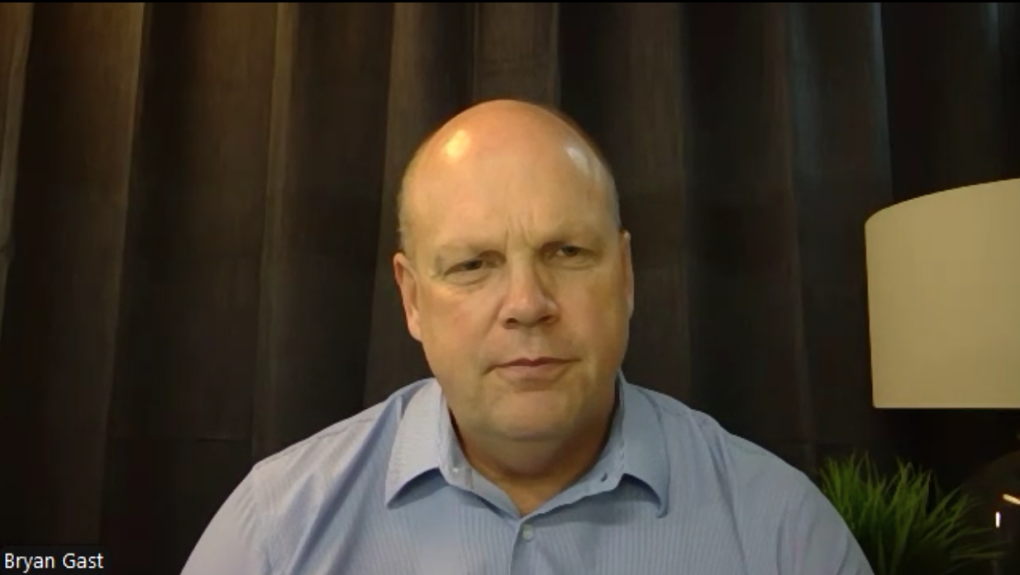It’s official — Quebec has set a new record for the most stolen vehicles recovered in one year by Canadian border agents.
With just over one month left in the year, the Canada Border Services Agency (CBSA) says officers have intercepted 1,213 stolen vehicles (and counting) at the Port of Montreal so far in 2024, breaking last year’s record of 1,204 vehicles.
The latest statistics from the federal government might not come as a surprise to those who live in or visited Montreal and had their cars vanish overnight.
The CBSA figures are updated on a monthly basis and were last refreshed on Nov. 7.
By comparison, 650 stolen vehicles in Ontario were seized by border officers so far. Nearly 60 per cent of the 2,108 stolen cars seized by the CBSA at Canadian railyards and ports in 2024 were in Quebec.
The Canada-wide figure is also a new record, surpassing 2023’s tally of 1,806.
Most of the cars that are stolen in Canada are routed through the Port of Montreal where they are shipped overseas, mainly to Africa and the Middle East.
Despite the high Quebec numbers, the federal government says auto theft is on the decline this year, citing a modest 19 per cent drop in auto insurance claims in the first half of the year.
(Source: Insurance Bureau of Canada)Transport Minister Anita Anand said last month that the number suggests the federal government’s strategy on auto theft is bearing fruit. In February, the federal government announced $28 million for the CBSA to detect and search containers.
The CBSA told CTV News that it plans to use that funding to strengthen intelligence-sharing with law enforcement to identify criminals involved in the stolen vehicle supply chain.
“This includes continuing to explore, test, and, if effective at deterring, procure new detection technologies for improved stolen vehicle interdiction and using advanced analytical tools, such as artificial intelligence,” the agency said in a statement.
Salvatore Barbieri, a CBSA superintendent at the Port of Montreal, said border agents can be reallocated if needed.
“If we require more officers, the officers here are trained to be assigned to various duties. And if we need to concentrate more on examining containers containing vehicles, then we’ll adjust accordingly,” he said in an interview.
The record-breaking Quebec seizures are no surprise to Bryan Gast, vice-president of investigative services at Equité Association, an anti-crime organization funded by insurance companies.
Gast, a former Ontario Provincial Police officer, says the record seizure is a direct result of the federal government’s investment in combating car theft and better collaboration between law enforcement “working hand in hand.”
“The partnership is great. Private-public partnership, including our investigators, to be part of that process. I think that’s really what shows the positive signs that we’re starting to see, especially when it comes to export,” Gast said in an interview.
 Bryan Gast, vice-president of investigative services at Equité Association. (CTV News)
Bryan Gast, vice-president of investigative services at Equité Association. (CTV News)
He said police forces rely on his experts at Equité to examine cars that are believed to be stolen.
“They can do a full expert examination of a vehicle to determine the true identity of the vehicle to determine if it’s stolen. So we provide that expertise to CBSA, to law enforcement,” he said. “Not all law enforcement have dedicated units with that expertise, so that’s why it’s a very good partnership. We can provide that expertise, and it works very well.”
Stopping cars from being stolen in the first place
Gast acknowledges what his police and Equité investigators do is “reactionary,” and tackling preventing cars from being stolen before they end up in a shipping container is a much harder feat. He said since 2007 all cars sold in Canada have an immobilizer on board but they haven’t been updated since — and that it’s up to manufacturers to modernize them to make the vehicle harder to steal.
Last month, the federal government also reached out to provinces and territories asking them to participate in meetings to discuss Vehicle Identification Numbers (VINs) being changed on stolen vehicles that are then resold — a process known as “re-vinning.”
Minister Anand’s office said that the Interprovincial Record Exchange can help detect re-vinning and that all provinces and territories need to fully participate in the system.
CTV News reached out to the Quebec government to ask if it will participate, but did not receive a response before publication time.

